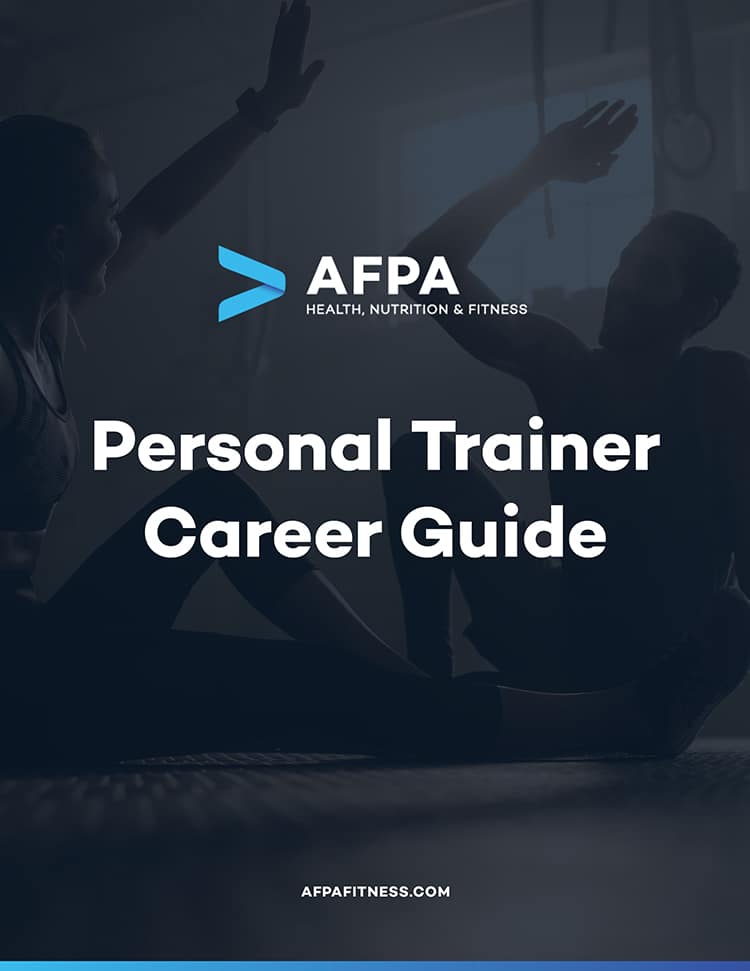Whether you’re a seasoned health and fitness professional, just developing an interest, or you’re in the market for a fulfilling career but you’re unsure of the path you want to take: a career in personal training can help you discover your own personal success, while inspiring others to lead a more fulfilling lifestyle in the process.
Before you jump into anything that you may still be exploring, it’s important to first establish your goals and objectives. What are you hoping to accomplish from your career? Are you motivated enough to lead by example and push your clients to be the absolute best they can be? This involves a multitude of things, including ensuring that you’re in your best possible physical shape and are in a positive mental state to give your clients something to envision at the end of their own journey.
Here are 9 tips to help you become a physical fitness trainer!
1. Make Sure You Have What it Takes
This may seem obvious, but it’s still worth taking seriously: Before becoming a physical fitness trainer, make sure you have what it takes to follow the career path in the long term. The best way to determine this is to ask your self two questions: Am I passionate enough about fitness to pursue it as a career? Am I motivated enough to stick with it?
Try to answer these as honestly as possible while envisioning what you think your life will be like as a physical fitness trainer. Don’t just imagine the upsides; consider the realities as well, like getting up early every day to meet clients, dealing with clients who are always late or miss appointments entirely, and the difficulties of working your way from a freshly certified trainer to a recognized name in fitness.
2. Find Your Niche
With the personal trainer market as competitive as it is, the best way to maximize your chances of success is to decide on a niche early on. By doing so, you can also focus on a more specialized certification. If possible, find an area that appeals to you and has high demand. Do you have a passion for strength training? Consider seeking strength trainer certification. Or maybe you know a lot of golfers looking to prevent injury and strengthen their game? Becoming a golf strength training specialist or golf injuries prevention specialist (or both) may be for you.
In terms of the actual certification process, it’s best to go with an association that has third party accreditation. This ensures your certification will be recognized and respected in the fitness community. Even when narrowing your choices down to accredited associations, there should be plenty of options to find a course that best fits with your schedule.
4. Familiarize Yourself with the Industry
Familiarizing yourself with the industry means actively seeking the kind of hands-on knowledge you won’t get from the classroom. If you aren’t certified yet, you can’t just go and start recruiting clients, so see if it’s possible to get a relevant internship or shadow an expert.
If those options aren’t available to you, or you simply want to get as much hands-on training as possible, you can even hire a your own specialist. This is a great way to see a specialist in action while expanding your knowledge base, improving your techniques and developing your own style. Whether you choose a seasoned professional, or someone whose style doesn’t quite match your own, you’re sure to learn something about the job and yourself from the process.
Learn How to Become a Certified Personal Trainer Online in Less Than 6 Months

5. Prepare and Set Yourself Up for Success
While building up hands-on experience is essential, don’t forget to focus on your studying as well. Your education is crucial, as a good knowledge base is a huge part of being a good physical fitness trainer of any kind. More importantly, you need to be ready to take your exam in order to achieve certification and avoid having to take a retest.
6. Develop Professional Relationships
Marketing yourself is half the job of being a physical fitness trainer, especially early on when you haven’t developed a reputation yet. If you’ve decided to take an internship, shadow an expert, or hire one of your own, you’ve already taken the first step toward building relationships and gathering contacts. However, befriending other fitness professionals is just a part of building professional relationships.
Getting to know gym-goers and gym staff in your area is also crucial. If you’re known around the local gyms as a strength training or elderly fitness specialist, you’re sure to start getting interest and recommendations. Meanwhile, gym staff like front desk associates will be able to give you an idea of who is looking for training in the gym.
7. Find the Best Fit
While keeping an eye out for people, don’t forget to consider location as well. Take time to explore the gyms in your area and decide on which would be the best fit for you and your needs. While factors like how well you get along with staff are important, it’s more worthwhile to consider which gyms are best equipped for your specialty. So, if you are planning to focus on strength training, a gym stocked with a good variety of weights and lifting equipment would be a good choice.
8. Improve Your Skills
After you get your certification and you feel settled into your new fitness career, don’t think that further education isn’t worth pursuing. For one thing, the science of exercise and the human body is ever changing; it’s up to you to stay on top of the latest trends and breakthroughs to ensure you’re always offering your clients the best advice and guidance.
Meanwhile, in terms of formal education, there will always be plenty more to learn. For example, if you started your career by obtaining a personal trainer certification, you can take it to the next level with advanced and/or master personal trainer certifications. Not only will further certification expand your knowledge base, it will in some cases allow you to expand the services you offer. Branching out and obtaining a nutrition and wellness consultant certification, for instance, will allow you to offer knowledgeable nutrition advice to clients, supplementing physical fitness activities.
9. Keep Evolving
Growing and evolving as a physical fitness trainer is about more than formal education. There are a number of skills that can’t be taught in the classroom, after all, like how to market yourself and building your reputation. Learning these types of skills comes largely from doing, so get out there and do as much as you can! Don’t be afraid to expand your horizons and tackle new opportunities.
For example, don’t limit yourself to just one-on-one training. Once you’re comfortable doing this type of training, look to new for new opportunities, like leading group classes or collaborating with peers. There are a lot of possibilities out there, but it’s up to you to make the most of them!
Learn How to Become a Certified Personal Trainer Online in Less Than 6 Months




